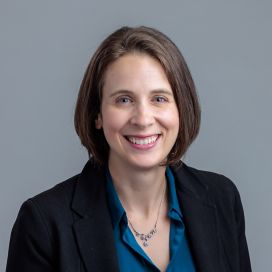NORC has been at the forefront of using administrative and big data in our research. We have experience with a wide range of administrative data sources ranging from government records (e.g., tax, crime, property, government assistance, etc.) and commercial data sources (e.g., voter lists, school records, financial transactions) to health care claims and physician records. Our researchers also have experience with a variety of big data sources, including social media and search, mobile device data, satellite imagery and GPS, and environmental or other types of sensor data.
Our research has focused on the strengths and limitations of these data sources, including the value of understanding how the data are created to help assess their usefulness. Our methodologists have developed approaches to evaluate the relevance, coverage, and availability of different data sources to determine which sources are best for a particular research project. Our researchers have worked extensively with health care claims and physicians’ records and understand the nuances of bringing together different data sources to provide coverage of different populations (e.g., Medicare, Medicaid, and private insurance), the cost of securing data from various sources, and have developed techniques to overcome the challenges with storing, transforming, and analyzing the data. We routinely process commercial data sources that are often combined with survey or other administrative and big data sources for research.
We also have conducted research on approaches and techniques for ingesting, cleaning, transforming, and linking data from different sources. For example, our statisticians have presented and published research on approaches for linking records across data sources, including probabilistic vs. deterministic methods, linkage routine optimization for accuracy and speed, and methods to estimate linkage error. NORC statisticians, methodologists, and data scientists have compared different approaches for harmonizing data across sources including evaluating measurement differences across sources and deciding how to best represent the measure in the final combined data.
Using & Enhancing Administrative & Big Data Experts
-
Dave Baugh
Senior Fellow -
Michael Berning
Senior Advisor -
F. Jay Breidt
Senior Fellow -
Robert Brown
Senior Data Scientist -
Scott Campbell
Senior Statistician -
Nicholas Davis
Principal Statistician -
Kevin Deardorff
Senior Advisor -
Robert M. Goerge
Senior Fellow -
Evan Herring-Nathan
Senior Statistician -
Sara Lafia
Research Methodologist -
Dave McQuown
Senior Data Scientist -
Edward Mulrow
Senior Vice President & Director -
Benjamin M. Reist
Principal Statistician -
Molly Rossow
Senior Data Scientist -
Zachary Seeskin
Senior Statistician -
Chrystine Tadler
Senior Statistician -
Andrea Tentner
Senior Data Scientist -
Emily R. Wiegand
Senior Data Scientist -
John Wittenborn
Senior Data Scientist








































